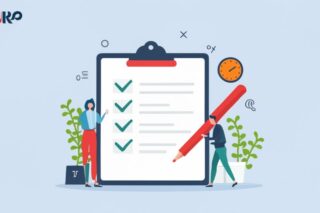
Are you a data engineer or developer looking to advance your career by demonstrating expertise in critical data engineering skills on the Microsoft Azure cloud platform? If so, then the DP-203 certification is your ticket to new career opportunities. This comprehensive guide will provide you with everything you need to know to prepare for and pass the dp 203 exam. Read on to master data engineering on Azure!
The DP-203 certification validates key skills in designing and implementing secure, scalable and robust data storage, processing, and analytics solutions on Azure. By earning this certification and mastering these in-demand skills, data engineers and developers can showcase their ability to meet the data-related needs of modern organizations – opening doors to lucrative job roles.
Introduction
The dp 203 certification focuses specifically on data engineering skills using Azure data services. It covers areas like:
- Data integration, transformation, and consolidation
- Designing Azure data storage solutions
- Designing data processing solutions
- Ensuring data security and compliance
It demonstrates an individual’s expertise in using Azure data technologies to ingest, store, process and analyze data in order to engineer high-quality data solutions.
Why is the dp 203 Valuable?
The dp 203 certification provides several key benefits:
- Validates expertise in using Azure for core data engineering tasks
- Qualifies candidates for high-paying Azure data engineering jobs
- Shows a strong foundation in cloud-based big data solutions
- Boosts earning potential and opportunities for career advancement
Who Should Get dp 203 Certified?
The DP-203 certification is ideal for:
- Data engineers
- Data developers
- BI developers
- Big data engineers
- ETL developers
It applies to professionals responsible for designing, building, integrating, optimizing, and maintaining Azure data storage, processing and analytics systems.
What Does the Exam Cover?
The DP-203 exam thoroughly tests key data engineering concepts and the ability to apply them using Azure data services. Let’s explore the exam in more detail.
Understanding the DP 203 Exam
The DP-203 certification exam focuses on assessing and validating hands-on skills in Azure data engineering across four key domains:
1. Design and Implement Data Storage (25-30%)
This section tests skills like:
- Designing Azure storage solutions for batch, streaming and structured/unstructured data
- Implementing data stores like SQL Databases, Cosmos DB, Storage Accounts
- Enabling security, performance, resilience and monitoring
2. Design and Implement Data Processing (25-30%)
It validates the ability to:
- Design batch and real-time data processing solutions
- Implement data processing patterns like ETL, ELT and streaming
- Work with services like Azure Data Factory, Azure Databricks, Azure Stream Analytics
3. Design and Implement Data Security (20-25%)
This covers data governance topics including:
- Securing data at rest and in transit
- Managing access and auditing storage and processing
- Ensuring compliance with organizational standards
4. Monitor and Optimize Data Storage and Data Processing (15-20%)
The focus here is on monitoring data pipelines, optimizing performance, and managing costs by:
- Monitoring batch and real-time data solutions
- Optimizing data stores for cost, security, performance
- Identifying and fixing bottlenecks/issues
Clearly, the DP-203 exam thoroughly evaluates expertise across critical data engineering disciplines on Azure. Let’s explore the key skills you need to develop.
Key Skills Covered in the DP 203 Exam
Mastering data engineering on Azure requires skills across data integration, storage, processing, security, optimization and monitoring.
Data Integration, Transformation and Consolidation
You need strong capabilities in:
- Integrating data from disparate structured/unstructured systems
- Transforming data for analysis using languages like Python and Scala
- Consolidating data from multiple sources into curated repositories
This forms the foundation for building analytics and ML solutions.
Designing Azure Data Storage Solutions
Choosing suitable data stores is crucial. Key skills include:
- Selecting storage approaches – from SQL databases to data lakes
- Estimating data storage requirements
- Configuring partitions, streaming, indexing and compression
- Enabling data resilience through backups, geo-redundancy
You must optimize storage for downstream analytics use cases.
Designing Data Processing Solutions
Being able to process large data volumes is critical. You should be adept at:
- Implementing batch data ETL/ELT workflows
- Building real-time data pipelines with tools like Azure Stream Analytics
- Leveraging services like Azure Data Factory, Azure Databricks for processing
- Debugging and troubleshooting data pipelines
This powers analytics applications that generate business value from data.
Designing for Data Security and Compliance
With growing regulations, data governance is paramount. Important capabilities include:
- Securing data in transit and at rest through encryption, tokenization
- Managing access to data using RBAC, shared access signatures
- Enabling auditing and logging to ensure compliance
- Anonymizing data to manage privacy
Such measures enable organizational compliance and risk management.
Hands-on with Azure Services
To put these skills into practice, you must gain robust hands-on experience with Azure services like:
- Azure Data Lake Storage Gen 2 – For big data analytics workloads
- Azure SQL Database – Managed relational database service
- Azure Databricks – Apache Spark-based analytics platform
- Azure Data Factory – Orchestrating data movement and workflows
- Azure Key Vault – Managing secrets and encryption keys
- Azure Stream Analytics – Real-time stream processing
Now let’s explore tips to build expertise in these services.
Study Strategies for the DP 203 Exam
Preparing for the DP-203 exam requires a multi-pronged approach focused on conceptual clarity, hands-on skills and exam readiness.
Effective Study Resources
Use diverse resources including:
- Microsoft Learn – Free online Azure training from Microsoft
- Instructor-led training – Classroom or online training
- Books & video courses – Self-paced learning options
- Certification hubs – Curated DP-203 prep resources
Combine several materials for comprehensive preparation.
The Importance of Hands-on Practice
Since the DP-203 exam evaluates hands-on proficiency in Azure data engineering, building strong practical skills is vital.
Dedicate over 60% of your prep time to hands-on practice through:
- Step-by-step lab exercises
- Real-world sample data engineering projects
- Testing skills under simulated exam conditions
- Using tools like Azure Cloud Shell
Such experiential learning accelerates skill development.
Utilizing the Microsoft Learn Sandbox
An excellent option for hands-on practice is the Microsoft Learn Sandbox. This provides:
- Access to a free, renewable Azure environment
- Over 200+ guided interactive learning modules
- Opportunity to build Azure skills risk-free
Make the sandbox your hands-on playground to gain DP-203 abilities!
Preparing for the DP 203 Exam with Real-World Scenarios
While conceptual knowledge is key, you must also apply skills to real-world data challenges.
Practical Exercises and Scenarios
Look for DP-203 prep resources providing:
- Industry-aligned sample projects mirroring workplace needs
- Guided hands-on labs with step-by-step implementation instructions
- Challenge scenarios that test a range of cross-functional skills
Working through realistic assignments develops exam-ready expertise.
Real-World Applications
Additionally, learn how data engineering helps organizations:
- Ingest data from websites, apps, IoT devices, transaction systems
- Build ML models by transforming raw data into model-ready training data
- Embed analytics into apps and products for intelligent experiences
- Enable business intelligence through data warehousing and visualization
Seeing real-world applicability aids learning and recall.
Tips and Tricks for DP-203 Exam Success
With consistent preparation, what additional tips can help DP-203 exam success?
Last-Minute Revision Tips
In the final days before your exam:
- Review key concepts like architectural designs, security controls
- Retake practice tests to reinforce strengths and identify gaps
- Focus on weaker domains that need improvement
Avoid trying to learn new skills at this stage.
Exam-Taking Strategies
On exam-day:
- Carefully read each question before answering
- Manage time by budgeting minutes per question
- Avoid getting stuck on difficult questions
- Check responses against question requirements
Remaining calm and methodical is vital.
Post-Exam Next Steps
Once complete:
- Verify exam results and certification status
- Review feedback to guide further learning
- Update resume and LinkedIn to highlight new skills
- Apply for Azure data engineering roles to advance your career
Leverage your achievement into professional growth.
Leveraging the Microsoft Certified Azure Data Engineer Associate Badge
Once you’ve passed the DP-203 exam, you will earn the Microsoft Certified Azure Data Engineer Associate certification. This badge validates your skills and can give your resume a competitive edge.
Be sure to update your Microsoft transcript and add the certification to your LinkedIn profile and resume. Recruiters often search for this badge when sourcing for Azure data engineering roles.
You can also join the Microsoft Certified Professional community to network with other professionals, find mentors, and access job opportunities. Leveraging your new certification fully can open more career doors.
Looking Ahead in Your Azure Data Engineering Career
The DP-203 is a great starting point, but don’t stop upskilling here! Look at expanding into other Azure certifications like:
- DP-200: For more depth in data engineering topics
- DP-201: Covering the full Azure Data Engineer Expert certification
- AI-900: Getting started with Azure AI fundamentals
- DP-100: For a machine learning orientation
Consider also picking up complementary skills like Python, Spark, and SQL at a deeper level.
Continuous skills expansion will make you a well-rounded candidate for senior Azure data engineering roles. The DP-203 is just the beginning of an exciting journey ahead!
Conclusion
The DP-203 certification validates expertise in meeting core data-related challenges with Azure data services. By providing conceptual knowledge and hands-on abilities across data engineering disciplines, the DP-203 opens up lucrative career opportunities.
Use the guidance in this guide to:
- Learn DP-203 exam concepts through diverse materials
- Build hands-on skills via real-world practice
- Apply tips and strategies to succeed on test day
With rigorous preparation, you will be well-equipped to pass the exam and unlock your career potential as an Azure data engineer!
The key is to dedicate time to build both cloud knowledge and practical ability with Azure data workloads. Microsoft Learn resources combined with hands-on labs and real-world use cases will get you exam-ready. Approach preparation systematically, focus on your weaker areas, and implement exam-day strategies to maximize performance.
With the DP-203 certification highlighting your Azure data prowess, exciting data-focused roles can be within your reach!
